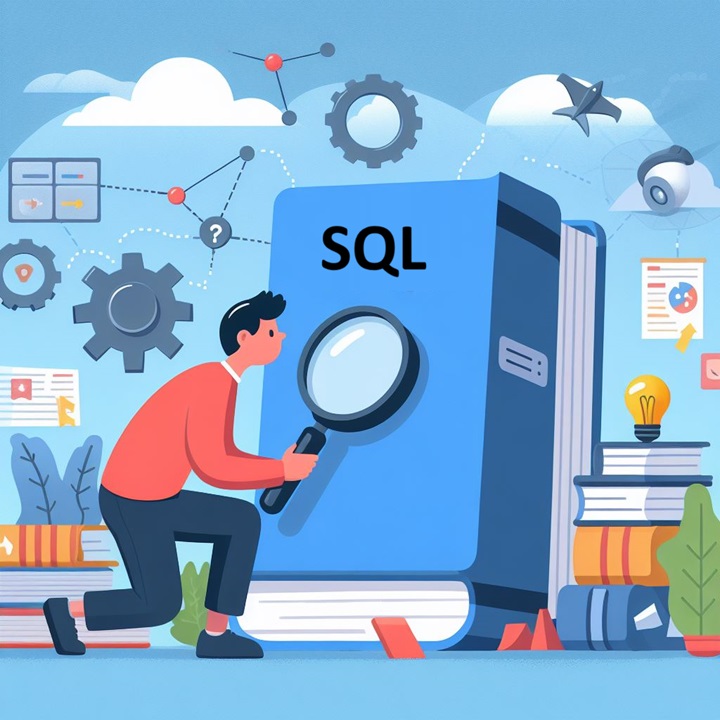In today's data-driven world, SQL (Structured Query Language) is a blazing-hot skill. It's your passport to understanding databases, making it essential for data analysts, developers, and anyone who wants to make data-backed decisions.
But the burning question is: how long will it take to learn SQL, especially if you're a beginner?
Let's ditch the unrealistic promises and figure out a realistic timeline.
Factors Influencing Your SQL Learning Speed
How quickly you grasp SQL depends on several key factors. Understanding these will help you customize your learning approach and set realistic expectations.
Let's break them down:
- Your Coding Experience: If you've coded before, even in a different language, you're in luck. The concepts of logic and syntax will feel familiar. But don't worry if you're starting from scratch – plenty of resources are tailored specifically for beginners.
- Learning Style: Do you thrive delving into textbooks, prefer interactive online courses, or learn best by tackling real-world projects? Discovering your preferred learning method will boost your engagement and make the process smoother.
- Time Commitment: Consistency is key! Dedicating smaller chunks of time regularly often delivers better results than cramming all your learning into occasional marathon sessions.
- Your End Goal: Understanding your objectives is crucial. Do you want to learn basic SQL for simple data analysis, or do you dream of becoming a database administrator? Your learning journey will adapt based on how deep you need to go.
Is SQL Easy to Learn?
Yes, the basics of SQL are surprisingly straightforward! Its syntax reads like plain English, making it relatively intuitive to grasp. Statements like SELECT, FROM, and WHERE form the core, and you'll be surprised by how quickly you pick them up.
But like any new skill, there's a learning curve. Don't get discouraged if you face those initial "Huh?" moments.
Consistent practice will help connect the dots, especially when dealing with more complex database structures and advanced queries.
The Best Way to Learn SQL in 2024 and Beyond

Finding the best way to learn SQL from scratch is often a personal journey. That said, some tried-and-true strategies are sure to boost your success. Here are the essentials:
- Master the Fundamentals: Before you start joining tables and writing fancy subqueries, nail the core concepts of how to learn SQL for beginners. Focus on understanding SELECT, FROM, WHERE, ORDER BY, and those foundational commands. Think of them as the building blocks for everything else you'll do in SQL.
- Mix and Match Your Resources: Often, combining different learning methods works best. Books provide structure, online courses bring interactivity, and tackling real-world projects solidify your knowledge. Feel free to experiment to find a combination that resonates with you.
Where to Find Top-Notch SQL Training?
Ready to dive into learning SQL? There are fantastic resources to learn SQL available, whether you prefer books, online courses, or a blend of both. Let's explore some of the top options:
- Harnessing the Power of Books: Books offer a structured, in-depth approach for learning SQL. If you enjoy a traditional learning format, start here. Here are two best free books to learn SQL for beginners:
- "Learning SQL 3rd Edition": This comprehensive guide is a great choice for those who want a thorough understanding of SQL.
- "SQL Quickstart Guide": Need to learn the basics of SQL fast? This book gets you up and running quickly.
- Unlocking the Potential of Online Learning Platforms: Online learning offers flexibility and interactive elements that can accelerate your SQL journey. Two excellent platforms to learn SQL for both beginners and more experienced learners are:
Should I Learn SQL or Python First?
If you're aiming for a career in data analysis, SQL and Python go hand-in-hand. Think of SQL as your gateway to accessing and extracting data stored in databases, while Python is your Swiss Army knife for analyzing, transforming, and visualizing that data.
For the most effective learning path, prioritize understanding basic SQL concepts first. This establishes a strong foundation for querying databases. Once you're comfortable with SQL, you can then layer on Python to unlock advanced data manipulation and analysis capabilities.
So, Can I Learn SQL in a Week?
Let's be honest – while you can learn SQL in a week, you won't become a database wizard overnight. With consistent dedication, a few weeks of focused study and practice can help you grasp the fundamentals of SQL and write your own basic queries.
Remember, true mastery is an ongoing journey. As you delve into larger datasets, complex queries, and specialized database systems your SQL skills will continue to grow and evolve.
The most important thing is to embrace the learning process and celebrate your progress along the way!
Wrapping It Up!
Learning SQL is a valuable investment for anyone who works with data. Don't get intimidated by misleading promises or discouraged by the vastness of the topic.
With the right resources, consistent effort, and a touch of patience, you'll be surprised at how quickly you can start speaking the language of SQL. So, what are you waiting for? Take the first step – the exciting world of data awaits!
